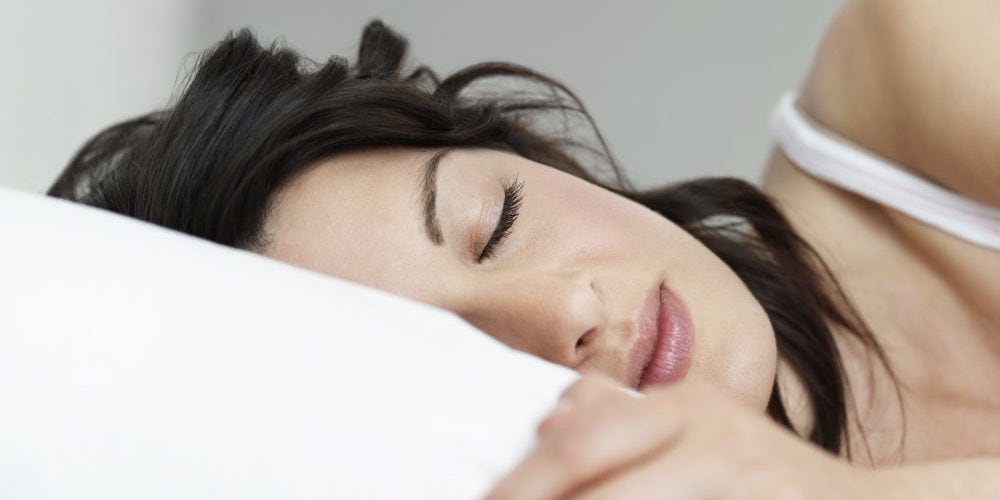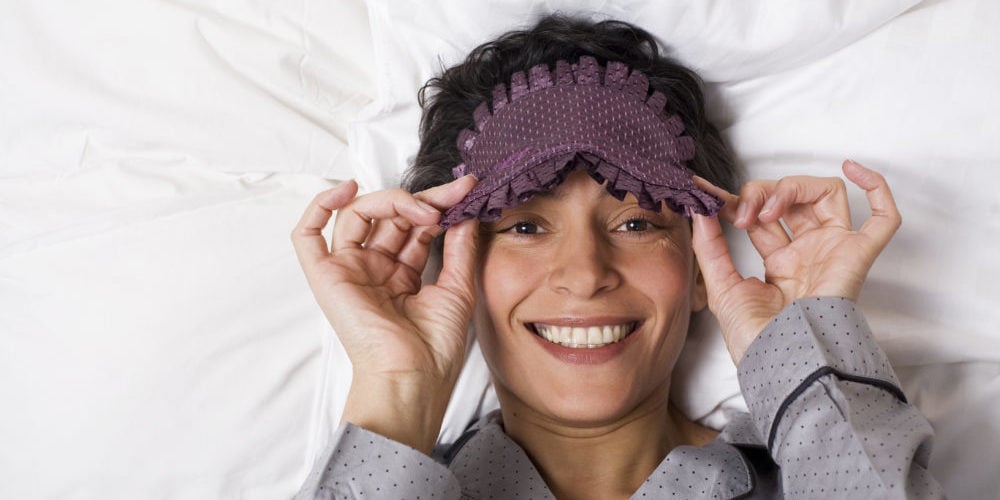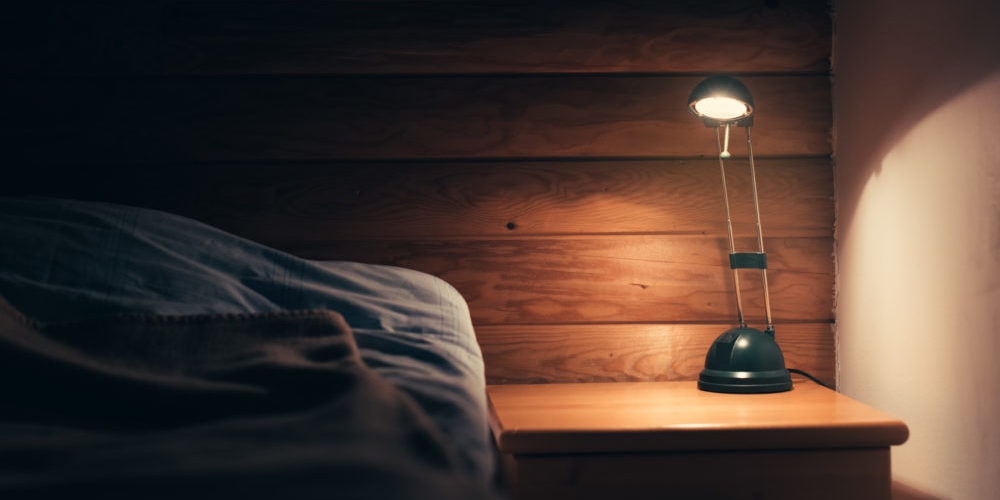
Sleep is a funny thing. We treat it lightly, staying up late, waking early, and occasionally bing sleeping on the weekends. We know that it’s probably not the ideal way to live, but what else can we do? We have so many responsibilities during the day and we want time for ourselves at night. We have to sacrifice sleep.
But what we often fail to realize is that sleep is the key to high performance. Optimizing our sleep leads to more output which then leads to more free time. Sleep is the key to unlocking the biggest gains in productivity.
This raises the question: how can we optimize our sleep?
In order to answer that question, we need to first understand the science involved in sleep. Once we grasp what’s happening in our bodies, we can modify our routines and rituals to improve sleep.
The Complete Necessity Of Sleep

This is probably the most discussed, yet most neglected point. We can’t just pay lip service to this point. It’s essential to remember the utter necessity of sleep, both for our health and our peak productivity. In a culture where sleep deprivation is sometimes worn like a productivity badge, and we idolize people who claim to survive on 4-hours per night, we need to prize sleep.
First and foremost, sleep is essential to restoring your body, including your mind.
A recent study at the University of Rochester found that:
…the brain’s unique method of waste removal – dubbed the glymphatic system – is highly active during sleep, clearing away toxins responsible for Alzheimer’s disease and other neurological disorders. Furthermore, the researchers found that during sleep the brain’s cells reduce in size, allowing waste to be removed more effectively.
Working intensely during the day is taxing on your mind. It requires intense focus, concentration, and thought. By the end of the day, your brain is worn out, just as any muscle is after an intense workout. Sleep allows your brain to clear the waste that has accumulated throughout the day.
We’ve all experienced waking after just a few hours and feeling like our brain is exhausted. This isn’t a sign of weakness. It’s a sign that we haven’t allowed your glymphatic system enough time to do its job. Our brains haven’t cleared the previous day’s waste.
Sleep is also crucial for keeping your metabolic system functioning properly. A study in 2011 concluded that insufficient sleep leads to massively fewer calories burned and results in fewer calories being burned from fat, which leads to muscle loss. When you don’t sleep, your metabolic system is thrown out of whack, leading your body to essentially eat itself.
How much sleep do you really need every night? Probably around 8 hours. This isn’t just common sense, it’s been proven by research as well. A study in 2003 showed that those who get fewer than 8 hours every night experience increasing cognitive decline as sleep debt accumulates.
The study notes:
Since chronic restriction of sleep to 6 h or less per night produced cognitive performance deficits equivalent to up to 2 nights of total sleep deprivation, it appears that even relatively moderate sleep restriction can seriously impair waking neurobehavioral functions in healthy adults. Sleepiness ratings suggest that subjects were largely unaware of these increasing cognitive deficits, which may explain why the impact of chronic sleep restriction on waking cognitive functions is often assumed to be benign.
Did you catch that? Sleeping 6 hours or less is essentially the same as having two nights of sleep deprivation. Additionally, you’re not even aware of the cognitive decline you’re experiencing.
Don’t fool yourself. You need around around 8 hours every night. Anything less will hurt your performance. If you want to be productive, mindful, and happy, you absolutely need sleep. It’s not an option.
Only around 1% of all people can function well on 4 hours of sleep. You’re probably not in that 1%.
The first step toward scientifically optimizing the perfect sleep routine? Make time for sleep. This may mean going to bed early so that you can rise early. It may mean shutting down Netflix sooner than you’d like. But if you want to have a perfect night’s sleep, you have to start by carving out sufficient time.
The Need For REM Sleep and Deep Sleep

To perform at high levels every day, you need significant amounts of rapid eye movement (REM) sleep, also known as dream sleep. REM sleep is when your body totally relaxes, your brain becomes very unresponsive to external stimuli, and your brain waves become much slower.
This isn’t the kind of sleep that occurs in catnaps. You can’t get sufficient REM sleep by dozing here and there. You need significant chunks of time.
During REM sleep, your brain processes and synthesizes the events of the day, allowing you to remember and recall things effectively in the future. In fact, one study revealed that when REM sleep is interrupted, it becomes much more difficult to learn new things. Your brain is simply unable to process what was learned that day.
One key way to optimize your sleep is to do whatever is necessary to avoid disrupting your REM sleep. A simple way to do this is to avoid alcohol before bed, which has a disruptive effect on REM. If you’re going out for drinks with friends, only consume non-alcoholic beverages as you get closer to bed.
Deep sleep is the stage of sleep that is most restorative to the body. Growth hormones are released, tissue is repaired, and energy is restored.
Failing to reach either REM or deep sleep has significant health consequences. You become more forgetful, weaker (due to lack of tissue repair), and are more susceptible to illness.
This again goes back to the necessity of setting aside sufficient time for sleep. Your body must reach the REM and deep sleep stages. When this doesn’t happen, your body begins to break down.
High performance requires hitting the deep stages of sleep every night, which can only happen if you carve out enough time in bed. There’s no other way around it.
Optimizing Your Sleep Every Night
Now that you understand some of the science involved in why your body desperately needs sleep, let’s look at some specific ways to optimize your sleep.

The Circadian Rhythm
Your circadian rhythm is your body’s internal clock, dictating when you wake and when you sleep. In order to optimize your sleep, you need to learn to work in conjunction with, not against, your circadian rhythm.
Your rhythm controls when certain actions happen in your body, such as the release of cortisol, the production of melatonin (which promotes sleep), motor coordination, reaction time, blood pressure and body temperature, and a lot more.
Generally speaking, there are three primary factors that drive your circadian rhythm: time (addressed above), light, and melatonin. Light is the biggest factor out of all these, and the one that can produce the biggest results.
Your body takes many cues from the light. As light brightens, your body perks up and as light dims, your body prepares for sleep. This is how your body is designed to work, and how our ancestors regulated their sleep cycles for millennia.
However, in recent years our light sources have become almost entirely artificial. We sit in front of screens all day and all night, constantly inundating ourselves with light. We fall asleep watching Netflix and the screen flickers in front of us for hours while we sleep. This constant exposure to light throws off our circadian rhythm.
To optimize our sleep, we need to dramatically cut down on our light exposure at night.
This means turning off screens well before bedtime, engaging in a night time ritual to prepare ourselves for sleep, and then removing as much light as possible from our sleeping area.
It may mean wearing a sleep mask if you sleep in an apartment with roommates or using blackout blinds if you live in a bright city.
If you absolutely must use a screen leading up to bed, then use a program that removes blue light, such as “Night Shift” on Apple devices or f.lux. Removing the blue light lessens the effect of light exposure.
Melatonin is the other huge factor in sleep. It’s the chemical produced by your body to regulate when your body sleeps. The closer it is to bedtime, the more melatonin your body should produce.
Many of our practices disrupt the production of melatonin, with one of the most common being caffeine consumption. How often have you told yourself, “A cup of coffee at 4 pm won’t hurt me?” It will.
Studies have shown that caffeine lowers the production of melatonin, which then leads to less REM sleep and more exhaustion the next day.
If you want to optimize your sleep, don’t drink caffeine after 2 pm. If you want to drink a hot beverage later in the day or as part of your nightly ritual, consider drinking herbal tea.
Other Simple Ways To Improve Sleep
There are also a few other scientifically backed ways you can tweak your sleep.
- Keep your room cool. The National Sleep Foundation recommends keeping your room at around 65 degrees at night for optimal sleep.
- Learn to meditate. Many people struggle with stressful thoughts and images, which keeps them awake. A study found that focusing on positive imagery can significantly help improve sleep for those in this group.
- Ban screens from the bedroom. Phones, tablets, and screens disrupt sleep in a variety of ways. Notifications, light, and even phone calls often lead to a poor night’s sleep.
Will You Protect The Asset?
Greg McKeown, author of Essentialism, says this:
The best asset we have for making a contribution to the world is ourselves. If we underinvest in ourselves, and by that I mean our minds, our bodies, and our spirits, we damage the very tool we need to make our highest contribution. One of the most common ways people— especially ambitious, successful people— damage this asset is through a lack of sleep.
The best contribution you can make to the world is yourself. No one else can do what you do or can offer what you offer. If you fail to sleep sufficiently, you deprive yourself and the world. You are an asset, and as with any asset, you must be protected.
If you want to perform at the highest levels, optimize your sleep. Don’t try to cheat your body out of what it needs. We have an audio program that can help you with that.

I also slept badly, read many articles, but I had a hard mattress, and I decided to buy an air mattress, and my sleep improved because of this.
The article are the great info.
and i think the human and animals are same way to sleep ?